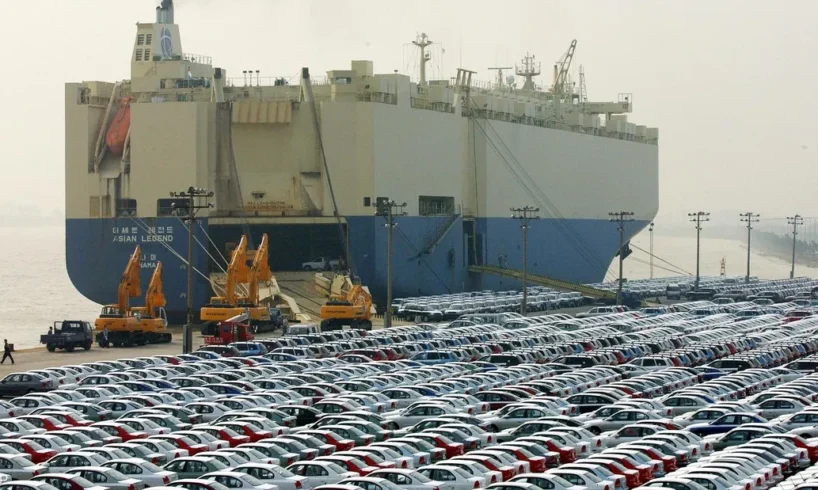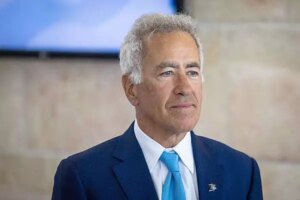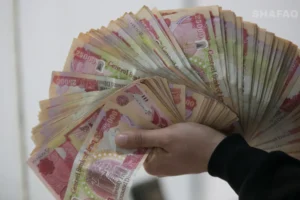
2025-08-22T18:39:33+00:00
font
Enable Reading Mode
A-
A
A+
Shafaq News
A recent 50%
hike in customs fees on certain vehicles and goods has stirred widespread
concern and debate in Iraq, as traders, economists, and officials question the
timing, legal basis, and potential consequences of the decision.
Previously set
at 15%, the updated tariff rate—now calculated at half the vehicle’s value—has
prompted varied reactions. Observers say the new rates could boost revenues and
protect domestic production, but importers warn of serious financial losses.
Clarifying The
Distinction
Mohammed
al-Jabari, a member of Iraq’s High Committee for Tax Reform, told Shafaq News
there has been no increase in taxes on goods, noting that taxes can only be
changed through parliamentary legislation. He clarified that while taxes
require a law passed by Parliament, service fees such as customs duties can be
amended directly by the relevant ministries or government agencies.
Al-Jabari
explained that the government approved the new customs fees for vehicles with
multiple objectives, including ensuring fairness between different types of
imported goods. “Previously, a container of cars and another of consumer goods
were charged equally, despite their differing values. The new pricing model
adjusts for that discrepancy,” he said.
Adding that the
customs rate on cars varies by type, and customs authorities deduct 30% of the
factory value before calculating fees, as a concession to importers, He also
noted that any importer who feels unfairly charged may submit an appeal to the
Private Sector Development Center at the Ministry of Planning.
Economic Policy
and Legal Foundation
Economic Expert
Ikram Abdul Aziz told Shafaq News that the government’s move is part of a
broader effort to support national industry and restructure the customs system
in line with development goals.
She stated that
the new customs framework, which took effect on June 1 under Cabinet Decision
No. 270 of 2025, introduced revised pricing lists and aims to raise non-oil
revenue. However, she emphasized that basic goods were excluded from the
increased tariffs.
Calling the
move “a significant step,” Abdul Aziz said the government is adopting a
deliberate strategy while trying to account for social and economic
implications. Despite the recent hike, she noted that taxes and fees currently
account for only 2–3% of state revenue, calling for better governance to
strengthen fiscal capacity.
Heavy Toll On
Car Dealers
Meanwhile,
vehicle importers and traders say they have been hit hard by the new pricing
system.
Sarhan Matar, a
car importer, told Shafaq News that the sudden jump in customs fees caused
major financial losses for many in the trade. “The surprise decision disrupted
the market. Cars priced at $30,000 are being appraised at $80,000, and duties
are calculated on that inflated amount,” he vowed.
Sate’ al-Douri,
another trader, added that rising customs costs have driven up vehicle prices
at dealerships, hurting both importers and customers. “The government needs to
revisit this decision quickly,” he urged.
Officials had
earlier stated that basic goods are exempt from the new customs rates and
defended the policy as a tool to reduce car imports and ease traffic
congestion. The federal government also informed the Kurdistan Regional
Government of the updated pricing lists.
Market Slowdown
In Baghdad’s
Bayaa district, showroom owner Ahmed Alwan reported a slowdown in car sales.
“Prices have gone up dramatically due to the customs hike, making car ownership
harder,” he said. “I’ve stopped buying cars. I only display vehicles that
private owners ask me to sell on their behalf.”
Alwan and other
dealers have shifted to installment-based sales as a way to keep business
moving.
Mustafa
al-Jubouri, a showroom owner in the Saydiya district, said customs fees on a
Dodge Challenger, for example, jumped from $30,000 to $60,000 “without any
prior notice.”
Kareem Khalaf,
a 32-year-old taxi driver, told Shafaq News he had planned to sell his current
car to buy a new one, but the rising prices forced him to abandon the idea.
Written and
edited by Shafaq News staff.





